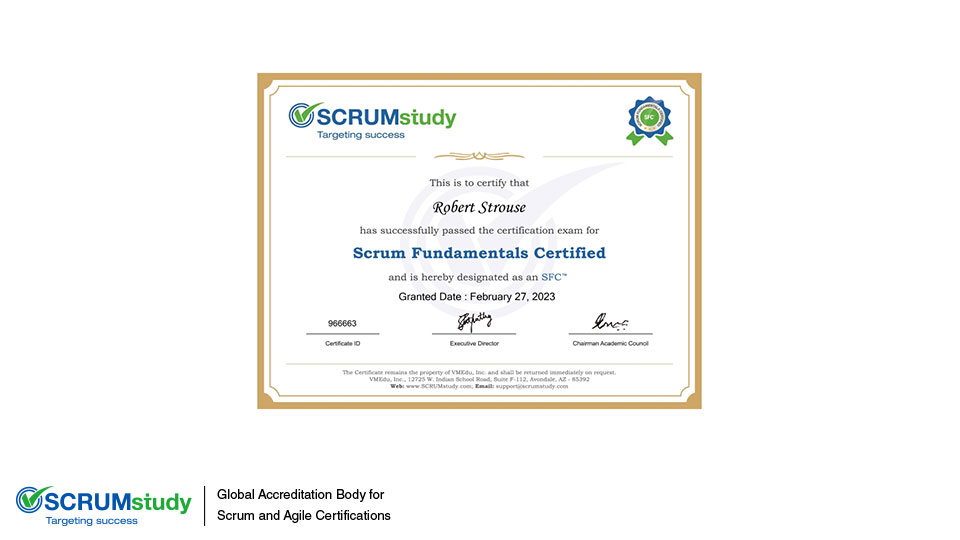Scrum Master certification exam practice methodology
Posted by SCRUMstudy® on July 19, 2024
Categories: Agile Certification SBOK® Guide Scrum Scrum Guide Scrum Master Training
Scrum Mastery certification practice involves an in-depth understanding and application of Scrum principles, roles, and artifacts to facilitate efficient and effective team performance. The certification process typically includes rigorous training on Scrum frameworks, including practical exercises, real-world case studies, and simulations. Candidates are tested on their ability to foster collaboration, manage conflicts, and enhance productivity within a team, ensuring alignment with Agile methodologies. Continuous learning and adaptation are key, as certified Scrum Masters must stay updated with evolving best practices and industry trends to drive successful project outcomes.
In the realm of Scrum Master certification training practices a comprehensive approach is emphasized to cultivate effective Scrum Masters. The training encompasses both theoretical knowledge and practical skills essential for facilitating Agile teams. Participants delve into the principles of Scrum, learning to navigate roles, events, and artifacts with clarity. Hands-on exercises and case studies provide a dynamic learning environment, fostering problem-solving abilities crucial for real-world application. Furthermore, the SBOK Guide emphasizes the importance of servant leadership, equipping Scrum Masters with the tools to empower teams and drive continuous improvement. Through interactive sessions and mentorship, aspiring Scrum Masters gain not only certification but also the confidence to champion Agile values and practices within their organizations.
We will attempt to do a quick overview of some of the Scrum certifications that are currently being offered.
Next, let's discuss how to choose the right Scrum trainer. While it can be beneficial to find a Scrum trainer with a similar background to yours, it is not an absolute requirement. The framework and style of Scrum training can vary from trainer to trainer, so it's important to find one that matches your learning style.
The biggest positive of a formal Scrum training is that you learn everything in a controlled environment. You meet people who are also there to learn about Scrum and in case you have common background, it helps to understand the process and difficulties of implementation from outsider’s point of view. A formal training also helps you understand about the mistake which you may make due to the traditional project management concepts rooted in you.
The main purpose of any certification is to impart a common baseline of the knowledge. These Scrum certifications, compared to any other project management certifications have a very easy test. You should remember that getting a Scrum certificate is way easier than the implementing actual Scrum framework.
Scrum and Agile methodologies offer significant flexibility in implementation. However, it's crucial to maintain the core principles of the process. Project managers who modify essential elements of Scrum are often referred to as "Scrumbut." It is generally recommended to adopt Scrum in its entirety initially to fully understand its mechanics. Once you have a solid grasp of the framework, you can then make informed decisions about potential adjustments. Over time, you may realize that no changes are necessary.
You need to understand that nothing is more valuable than experience. Scrum or Agile Certification may only add some credibility and marketability to the individual.

